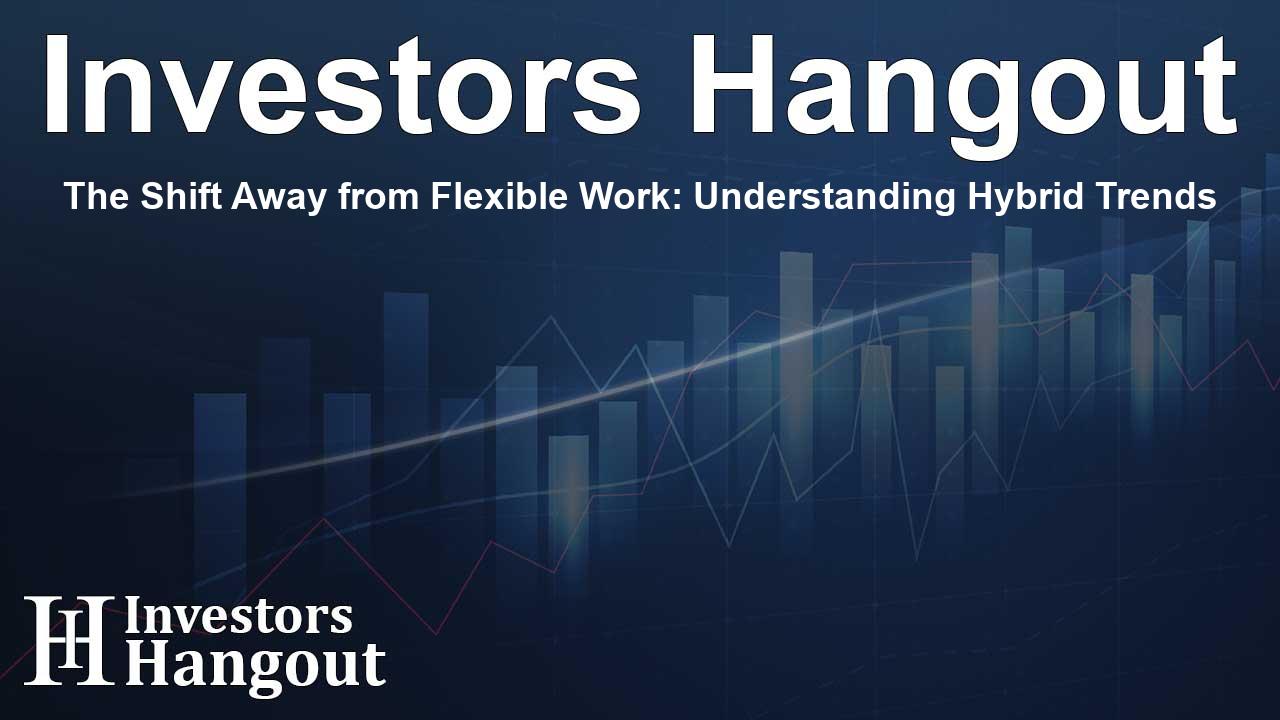The Shift Away from Flexible Work: Understanding Hybrid Trends

Understanding the Rise of 'Hybrid Creep'
Flexible work arrangements, once a staple of modern employment, are experiencing a notable shift. A recent survey indicates that 34% of employees may be required to be in the office four days a week in the near future. This increase has been attributed to a trend dubbed "hybrid creep," where companies gradually require more in-office attendance.
The Boiling-Frog Concept Explained
Frank Weishaupt, the CEO of a video conferencing company, likens this trend to the boiling-frog phenomenon. Employees are not facing an abrupt return to full-time office work; instead, companies are implementing changes in small, manageable increments. This method potentially helps to avoid major pushback from staff who have grown accustomed to remote or hybrid work environments.
Employee Sentiment on Return-to-Office Mandates
Academic insights from Peter Cappelli, a management professor, reveal a hidden tension behind the statistics. While workers are not immediately resigning, it doesn't indicate their approval of the changes. In fact, a significant portion of employees report readiness to seek other job opportunities if hybrid work options are eliminated. According to the survey, 40% of respondents mentioned they would start job hunting for positions offering more flexibility.
The Concerns of Full-Time Office Return
Andrew Coggins, another academic, points out that pushing employees toward a full-time office presence could create challenges. Various factors, such as child-care and elder-care responsibilities, can prevent employees from meeting strict office requirements. Thus, it's crucial for companies to balance their operational needs with the realities facing their workforce.
Understanding Quiet Quitting
The rise of "quiet quitting" is another poignant aspect of this corporate landscape. This trend sees employees contributing the minimum required effort, often reflecting disengagement. Alarmingly, data shows that 67% of those practicing quiet quitting are working full-time in the office, as opposed to just a small fraction of hybrid or remote workers. This indicates a potential disconnect between workplace demands and employee morale.
Job Market Implications of Hybrid Work
Flexibility, as highlighted by the survey, is pivotal in the job market. Many potential employees would refuse job offers with stringent in-office attendance policies. Approximately 34% stated they would decline a job that required full-time office work, while another 30% look for positions that offer flexible work environments.
Future of Work: Retaining Talent
Companies must deeply consider the implications of transitioning back to in-person work exclusively. While there might be a desire among employers for greater control and supervision, the presence of hybrid work arrangements seems essential in attracting and retaining top talent in today’s competitive landscape.
Frequently Asked Questions
What is 'hybrid creep' in the workforce?
'Hybrid creep' refers to the gradual increase in required in-office attendance by employers, moving away from flexible work solutions.
How can companies avoid pushback from employees?
Companies can avoid pushback by implementing changes slowly and maintaining open communication with their employees about work policies.
What percentage of employees are now embracing remote work?
A recent survey indicates that a significant portion of employees are willing to leave their jobs if hybrid work options are phased out.
What role does quiet quitting play in the current work culture?
Quiet quitting reflects a disconnect in employee engagement, with many doing just enough to meet their job requirements without going above and beyond.
Why is flexibility important for potential job seekers?
Flexibility is critical for job seekers as it accommodates personal obligations such as child-care and elder-care, making potential job offers more appealing.
About The Author
Contact Hannah Lewis privately here. Or send an email with ATTN: Hannah Lewis as the subject to contact@investorshangout.com.
About Investors Hangout
Investors Hangout is a leading online stock forum for financial discussion and learning, offering a wide range of free tools and resources. It draws in traders of all levels, who exchange market knowledge, investigate trading tactics, and keep an eye on industry developments in real time. Featuring financial articles, stock message boards, quotes, charts, company profiles, and live news updates. Through cooperative learning and a wealth of informational resources, it helps users from novices creating their first portfolios to experts honing their techniques. Join Investors Hangout today: https://investorshangout.com/
The content of this article is based on factual, publicly available information and does not represent legal, financial, or investment advice. Investors Hangout does not offer financial advice, and the author is not a licensed financial advisor. Consult a qualified advisor before making any financial or investment decisions based on this article. This article should not be considered advice to purchase, sell, or hold any securities or other investments. If any of the material provided here is inaccurate, please contact us for corrections.
